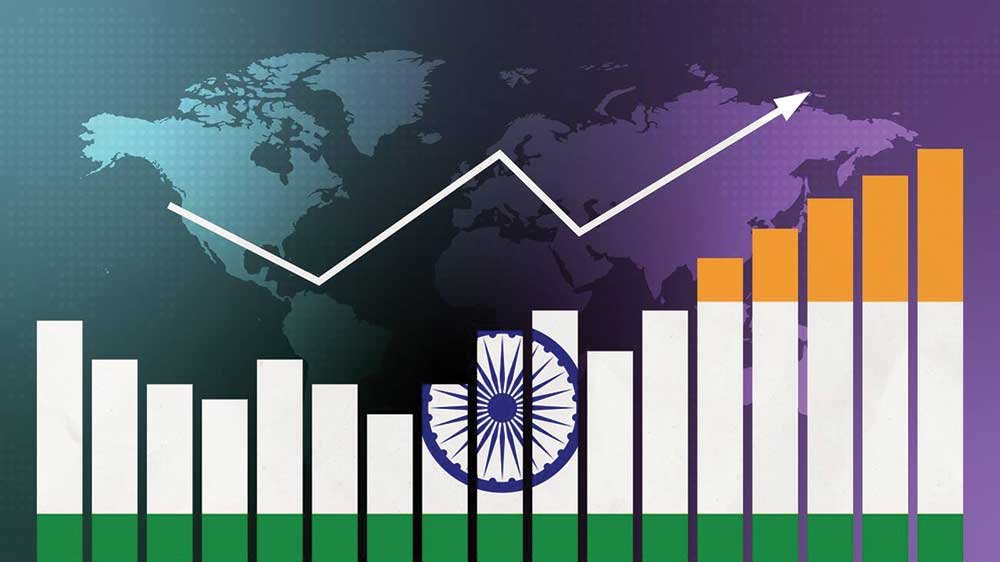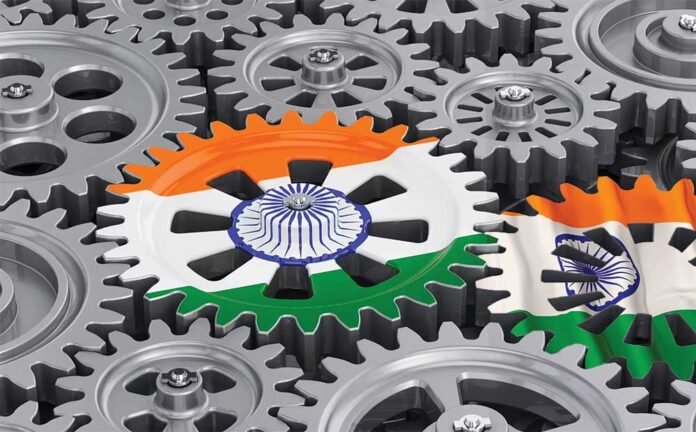The global leadership landscape is in transition. While the United States is dealing with internal divisions and a reduced appetite for global responsibility, China’s growing power has led to distrust in many regions, especially among democratic and smaller nations. At the same time, international institutions like the United Nations and World Bank are seen as outdated and dominated by older powers.
In this context, India stands out. It is the world’s largest democracy, has a fast-growing economy, and has been an active participant in solving global problems. India’s actions during the COVID-19 pandemic, such as sending vaccines to developing countries, showed its willingness to lead. But global leadership is not only about good intentions; it also requires being accepted by others. India’s rise is being watched with both hope and caution.
In today’s world, rising geopolitical conflicts and trade wars are reshaping global alignments. National interests are increasingly overriding traditional multilateral diplomacy, leading to a decline in consensus-driven global governance. As a result, nations are moving toward transactional cooperation — focused more on immediate gains than shared values or long-term partnerships. This fragmented landscape complicates India’s leadership ambitions, but also opens up opportunities for flexible and pragmatic engagement with diverse partners.
While the United States is dealing with internal divisions and a reduced appetite for global responsibility, China’s growing power has led to distrust in many regions, especially among democratic and smaller nations. At the same time, international institutions like the United Nations and World Bank are seen as outdated and dominated by older powers
India’s Strategic Strengths
India brings several key strengths that can help it play a leadership role globally:
- Democratic Values: India is the world’s most populous democracy. Despite its challenges, India continues to hold elections, maintain a free press, and operate under the rule of law. This gives India moral credibility, especially among other developing countries.
- Helping Others Develop: India has a strong record of supporting other countries through aid, training programmes, and sharing technology. For example, the ‘Vaccine Maitri’ initiative sent COVID-19 vaccines to more than 90 countries, as per Ministry of External Affairs’ records.
- Independent Foreign Policy: India does not blindly follow any one country or group. It engages with the US, Russia, Europe, and the Global South. This balanced approach allows India to be a trusted partner in a divided world.

Challenges India Face
Despite these advantages, there are several reasons why India’s leadership might not be accepted easily:
- Resistance from Big Powers: The US still wants to lead the global system but finds it hard to share space. China, on the other hand, prefers dominance through projects like the Belt and Road Initiative. Shivshankar Menon., in his book ‘India and the World: Through the Eyes of an Indian Diplomat’ writes that India’s approach, which focuses on cooperation and fairness, does not fit into the current global power model.
- Global South’s Hesitation: Countries in Africa, Southeast Asia, and Latin America often prefer to stay neutral. They take support from China, the US, and India but hesitate to commit to any one leader. India needs to show long-term commitment to gain their full trust.
- Western Narratives: Pankaj Mishra in his book, ‘The Western Narrative Trap’ rightly points out that much of the global media, academic research, and policy thinking is shaped by the West. These sources sometimes view India through a critical or narrow lens. As a result, India’s voice and its own narrative get overshadowed.
In today’s world, rising geopolitical conflicts and trade wars are reshaping global alignments. National interests are increasingly overriding traditional multilateral diplomacy, leading to a decline in consensus-driven global governance. As a result, nations are moving toward transactional cooperation — focused more on immediate gains than shared values or long-term partnerships
What India Can Do
India can still rise as a respected global leader by taking a few important steps:
- Tell its Story Better: India needs to communicate its own development model and values. Investing in think tanks, research, and public diplomacy can help create a stronger international voice.
- Deepen Ties with Developing Nations: India must build long-term partnerships with countries in Africa, Latin America, and Southeast Asia. These should go beyond aid and include technology, digital infrastructure, and climate cooperation.
- Focus on Economic Growth and Social Harmony: A strong economy and a stable society are the foundations of any global power. India must continue to improve infrastructure, education, and innovation.
- Form Practical Partnerships: India doesn’t need to join military alliances. It can work with like-minded countries on shared interests like clean energy, digital technology, and disaster management.
- Promote Fair Leadership: Rather than dominating others, India can show how leadership means helping others grow. This idea of global stewardship is needed in today’s world.
The world is looking for a responsible and inclusive leader. India, with its history, diversity, and developmental approach, has what it takes. But leadership must be earned, not granted. India must invest in its story, its economy, and its relationships. With the right steps, India can play a key role in shaping a fairer, more balanced global future
The world is looking for a responsible and inclusive leader. India, with its history, diversity, and developmental approach, has what it takes. But leadership must be earned, not granted. India must invest in its story, its economy, and its relationships. With the right steps, India can play a key role in shaping a fairer, more balanced global future.
–The writer is an internationally experienced leader in R&D and product innovator with a proven track record of building and transforming global organisations to accelerate innovation, reduce costs, and drive growth across the healthcare sector. As a thought leader in global affairs, he offers unique perspectives at the intersection of technology, healthcare, and international strategy. The views expressed are personal and do not necessarily reflect the views of Raksha Anirveda






